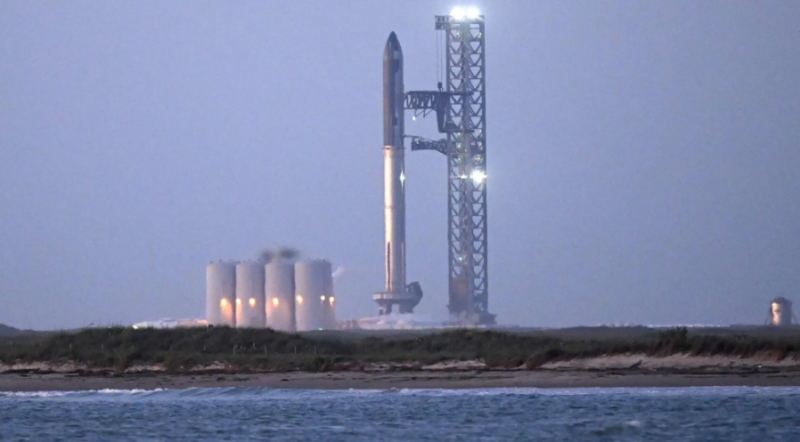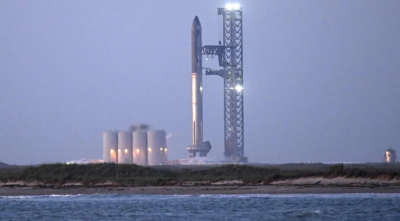Elon Musk's SpaceX has postponed the first test orbital flight of its "Starship" rocket, the largest and most powerful in the world. The new rocket system consists of two stages: the spacecraft (Starship) and the rocket booster (Super Heavy). The rocket, which stands 120 meters tall, was scheduled to launch from a SpaceX facility in Boca Chica, Texas, during a two-hour launch window opening at 8 a.m. Eastern Time (1200 GMT). However, the California-based space company announced in a live stream that the 90-minute mission to space has been delayed by at least 48 hours, citing a frozen pressure valve in the rocket's booster system.
The test flight represents a milestone in SpaceX's ambition to send humans back to the Moon and ultimately to Mars, which is also the primary goal of NASA's spaceflight program. However, SpaceX faces immense challenges in merely launching a spacecraft that would become the most powerful rocket on Earth if it successfully lifts off. Musk told a select audience on Twitter last night, "Don’t expect success." He added that the best-case scenario would provide critical data on how the vehicle ascends into space and returns to Earth. He noted, "Success may not happen tomorrow... it's a very difficult thing." Musk mentioned last night that it is "likely" the flight would be postponed rather than launched today. SpaceX has backup launch windows available on Tuesday and Wednesday around the same times.




